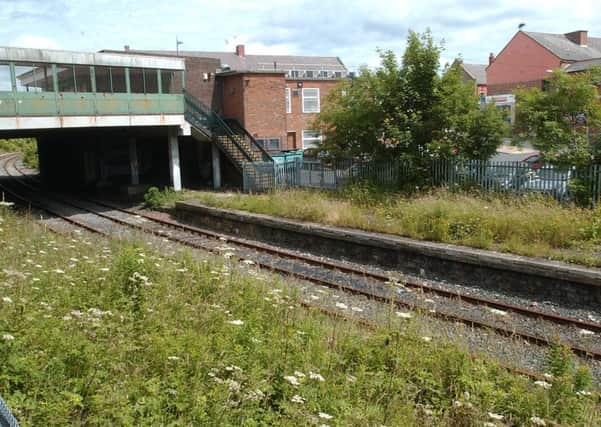Northumberland agrees devolution deal


It was agreed by Northumberland County Council’s decision-making cabinet this morning following a satisfactory response to a series of concerns raised at the March meeting.
If ultimately agreed, the move will represent a major change to the way in which decisions will be made in the future about transport, investment, funding, skills training, business support, housing and strategic planning.
Advertisement
Hide AdAdvertisement
Hide AdIt will also result in a new elected mayor – to be elected for the first time in 2017 – who would be part of a cabinet along with the seven local-authority leaders.
Coun Jeff Reid was the only member to vote against the motion, saying: “I don’t think having an elected mayor is the right solution for the North East. I think it’s going to be detrimental to the rural areas, the west and north of Northumberland.
“People are not going to get the elected mayor, they are not going to understand the powers they have and it just inserts another level of bureaucracy.
“I can see how it might work in London or Manchester. I can even see how an elected mayor for Tyne and Wear might work. I don’t see what advantages there are for Northumberland or the people of Northumberland.
Advertisement
Hide AdAdvertisement
Hide Ad“When the mayor starts charging a precept, because that’s in there, there’s going to be another line on the council tax bill and people aren’t going to like it.
“It’s a complete and utter travesty of democracy and a complete waste of money.”
But Coun Peter Jackson said: “It’s about a lot more than that, it’s about the devolution of real powers to the North East. It’s powers we have wanted for years and years, and we have suffered because we have been ruled from Whitehall.”
He referred to inward investment, £700million of funding for further and higher education, access to extra European funding through match-funding and transport, including the reopening of the Ashington, Blyth and Tyne Railway.
Advertisement
Hide AdAdvertisement
Hide AdOn the elected mayor, he added: “The mayoral appointment will have two particularly positive outcomes; there will be this clear accountability for one person to achieve those aspects I mentioned and we need someone to champion this region down in Whitehall.”
Coun Robert Arckless said: “I’m very uncomfortable about the mayoral model as I believe many of us are. The model works as well as we can make it for our area. I think there are particular issues for Northumberland and Durham because we are not metropolitan areas and we do have different issues.
“But sometimes you have to be pragmatic; the Government has made it absolutely clear that there will be no devolution without a mayoral model. I hope we will be able to play a constructive part in the combined authority. We can’t work in isolation, we have to work with partners and it makes sense to work with partners in our own region.”
Coun Paul Kelly added: “It’s the only game in town. We have had lots and lots of our interests brought down to ground level by the current and previous governments. What we have had over a number of years is a diminution of the powers of local government and this is one way to do a kind of rebuild.”
Advertisement
Hide AdAdvertisement
Hide AdThe timetable for the creation of a mayoral combined authority and the associated devolution of powers requires two Orders to be laid before Parliament.
The first establishes the mayoral combined authority and initiates the process to exclude any non-consenting authorities (NCAs). In order to facilitate mayoral elections in May 2017, agreement to making this first Order is required by next week; the North East Combined Authority Leadership Board is meeting on Friday.
Newcastle and North Tyneside have already agreed; Durham, South Tyneside and Sunderland wanted similar assurances much like Northumberland, but Gateshead has already rejected being part of the mayoral combined authority.
What were the council’s conditions?
The Devolution Agreement, which the leader the council signed in October 2015, represents the reality of what the Government is going to deliver, with neither the substance nor content of the various pledges ‘watered down’ in the light of subsequent discussions between officials.
Advertisement
Hide AdAdvertisement
Hide AdThere is an undertaking that the forthcoming Fair Funding Review and subsequent approach to the proposed Business Rate Retention Scheme will properly address the current inequality within the local government funding model associated with rurality and sparsity in delivering council services.
Subject to the outcome of the next stage of the GRIP viability process due to conclude in the spring, the Combined Authority and the Government give a clear commitment that the necessary funds to re-establish passenger services on the Ashington, Blyth and Tyne Line will be forthcoming.
There is a commitment to build a ‘rural-proofing’ element into the prioritisation and allocation of the North East Investment Fund (which will also include subsequent allocations from the Local Growth Fund) to ensure that rural areas are not left behind and receive an equitable share of funding to promote sustainable economic growth.